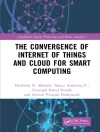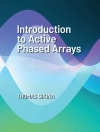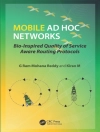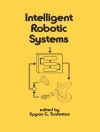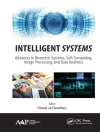This book provides an overview of the current state of the art in wireless networks around the globe, focusing on utilizing the latest artificial intelligence and soft computing techniques to provide design frameworks for wireless networks. These techniques play a vital role in developing a more robust algorithm suitable for the dynamic and heterogeneous environment, making the network self-managed, self-operational, and self-configurational, and efficiently reducing uncertainties and imprecise information.
Table of Content
An Analysis and Comparison of Security Protocols on Wireless Sensor Networks (WSN).- On the Security Weaknesses in Password Based Anonymous Authentication Scheme for E-Health Care.- Integrated Probabilistic Relevancy Classification (PRC) scheme for Intrusion Detection in SCADA Network.- Intrusion Detection System in Internet of Things.- Deep Learning and Machine Learning Techniques for Intrusion Detection and Prevention in Wireless Sensor Networks: Comparative Study and Performance Analysis.- Study and Design of Route Repairing Mechanism in MANET.- A Comprehensive Parameterized Resource Allocation Approach for Wireless Sensor Networks.- Effect of Wormhole Attacks on MANET.- Distributed Online Fault Diagnosis in Wireless Sensor Networks.- Ambient Intelligence for Patient-Centric Healthcare Delivery: Technologies, Framework and Applications.- Evolutionary Algorithms for Coverage and Connectivity Problems in Wireless Sensor Networks: A Study.- Nature-Inspired Algorithms for k-Coverage and m-Connectivity Problems in Wireless Sensor Networks.- Swarm Intelligent Based Detection in the Uplink of Large-Scale MIMO Wireless Communication Systems.- A Non-linear Strategy Management Approach in Software Defined Ad-hoc Network.- Image Encryption in Io T Devices using DNA and Hyperchaotic Neural Network.- Implementation of Traffic Priority Aware Medium Access Control Protocol for Wireless Body Area Networks.- Enhanced Shortest Path Routing Protocol using Fuzzy C Means Clustering for Compromised WSN to Control Risk.- Fuzzy Petri Nets based Intelligent Routing Protocol for Ad-Hoc Network.
About the author
Dr. Santosh Kumar Das received his Ph.D. degree in Computer Science and Engineering from Indian Institute of Technology (ISM), Dhanbad, India, in 2018 and completed his M. Tech. degree in Computer Science and Engineering from Maulana Abul Kalam Azad University of Technology (erstwhile WBUT), West Bengal, India, in 2013. He is currently working as Assistant Professor at School of Computer Science & Engineering, National Institute of Science and Technology, Berhampur, Odisha-761008. He is having more than eight years teaching experience. He has contributed more than 25 research papers. His research interests mainly focus on Ad-hoc and Sensor Network, Artificial Intelligence, Soft Computing, and Mathematical modeling.
Mr. Sourav Samanta is currently working as Assistant Professor in the Department of Computer Science and Engineering at University Institute of Technology, The University of Burdwan, West Bengal, India. Before joining the University Institute of Technology, he worked as lecturer at the Gobindpur Sephali Memorial Polytechnic, Guskara, Burdwan, West Bengal. He has completed M. Tech in Computer Science and Engineering from JIS College of Engineering, Kalyani, West Bengal and completed B.E in Information Technology from University Institute of Technology, Burdwan, West Bengal respectively. He has more than six years, academic experience.
His research area includes Bio Inspired Computing, Quantum Machine Learning and Information Security, Networking. He has published 40 research papers in various reputed International Journals and Conference and co-authored a book. He is a regular reviewer of IEEE Access and IEEE Sensor Journals. He serves as Program Committee member for various International Conferences. He has an interest in interdisciplinary research. He is a member of Computer Society of India and International Association of Engineers.
Dr. Nilanjan Dey is an Assistant Professor (Senior Grade) in Department of Information Technology at Techno India College of Technology (under Techno India Group), Kolkata, India. He has completed his Ph D. in 2015 from Jadavpur Univeristy, Kolkata, India. He is a Visiting Fellow of Wearables Computing Laboratory, Department of Biomedical Engineering Univeristy of Reading, UK. He is the Visiting Professor of College of Information and Engineering, Wenzhou Medical University, P.R. China and Duy Tan University, Vietnam. He has held honorary position of Visiting Scientist at Global Biomedical Technologies Inc., CA, USA (2012-2015). He is a Research Scientist at Laboratory of Applied Mathematical Modeling in Human Physiology, Territorial Organization of- Scientific and Engineering Unions, Bulgaria, Associate Researcher of Laboratoire RIADI, University of Manouba, Tunisia and Scientific Member of – Politécnica of Porto. Before he joined Techno India College of Technology, he has served as an Assistant Professor at JISCollege of Engineering and Bengal College of Engineering and Technology.
With more than 10 years of teaching and research experience, he has authored/edited more than 40 books with Elsevier, Wiley, CRC Press and Springer, and published more than 350 research articles. He is the Editor-in-Chief of Int. J. of Ambient Computing and Intelligence (IJACI, IGI Global, UK, Scopus), Int. J. of Rough Sets and Data Analysis (IGI Global, US, DBLP, ACM dl). He is the Series Co-Editor of Springer Tracts in Nature-Inspired Computing (STNIC), Springer and Advances in Ubiquitous Sensing Applications for Healthcare (AUSAH), Elsevier, Series Editor of Computational Intelligence in Engineering Problem Solving and Intelligent Signal processing and data analysis, CRC Press (FOCUS/Brief Series), De Gruyter Series on the Internet of Things and Advances in Geospatial Technologies (AGT) Book Series, (IGI Global), US, serves as an editorial board member of several international journals, including International Journal of Image Mining (IJIM), Inderscience, Associated Editor of IEEE Access (SCI-Indexed), and International Journal of Information Technology, Springer.
In addition, he was awarded as one among the top 10 most published academics in the field of Computer Science in India during the period of consideration 2015-17 during ‘Faculty Research Awards’ organized by Careers 360 at New Delhi, India on March 20, 2018.
His main research interests include Medical Imaging, Machine learning, Computer Aided Diagnosis as well as Data Mining. He has been on program committees of over 50 international conferences, a workshop organizer of 5 workshops, and acted as a program co-chair and/or advisory chair of more than 10 international conferences.
He has given more than 50 invited lectures in 10 countries, including many invited plenary/keynote talks at the international conferences such as ITITS2017 (China), TIMEC2017 (Egypt) and Bio Com2018 (UK) etc.
Dr. Rajesh Kumar received a B.Tech. Degree with Honours from National Institute of Technology, Kurukshetra, India, in 1994. He also earned a M.E. Degree with Honours from the Malaviya National Institute of Technology, Jaipur, India in 1997; he earned a Ph D. Degree from the Malaviya National Institute of Technology, Jaipur and University of Rajasthan, Jaipur in 2005. He was awarded Post Doctorate Research Fellow in the Department of Electrical and Computer Engineering at the National University of Singapore (NUS), Singapore, from 2009 to 2011. He is currently serving as Professor and Head. He is also adjunct faculty to Centre of Energy and Environment at Malaviya National Institute of Technology, Jaipur, India.
Dr. Kumar has carried out extensive research in various areas of theory and practice of intelligent systems, bio and nature inspired algorithms, smart grid, power electronics, power management, applications of AI to image processing and robotics. He has published more than 450 papers in international refereed journals and conferences. He has received and published 12 patents. He has supervised 15 Ph D and 35 Master thesis. Dr. Kumar has won the Career Award for Young Teachers, Government of India in 2000. He received 06 best thesis awards, 05 academic awards, 12 best paper awards, 04 professional awards and 30 student awards.
He is Vice Chairman, IEEE Rajasthan Sub Section and Executive Member, IEEE PES-IAS Delhi Chapter and Computer Society of India, Rajasthan Section. He is Associate Editor of IEEE ITe N (Industrial Electronics Technology News), Associate Editor, Swarm and Evolutionary Computation, Associate Editor, IET Renewable and Power Generation, Associate Editor, IET Power Electronics, Deputy Editor-in-Chief, CAAI Transactions on Intelligent Technology, Associate Editor, International Journal of Bio Inspired Computing. He is an Editorial Member of more than 15 Journals. Dr. Kumar is also Senior Member IEEE (USA), Fellow IET (UK), Fellow IE (INDIA), Fellow IETE, Life Member CSI, Senior Member IEANG and Life Member ISTE.







